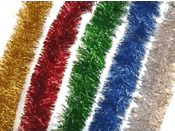The word purse has an interesting history, I discovered today. It comes from the Old English word purs, from the Late Latin word bursa, which had a number of meanings of the centuries, including skin or leather; (money) bag; scrotum; exchange; and scholarship, allowance, and comes from the Greek word βύρσα (hide, leather).
bursa is also the root of bursar, bursary, purser and reimburse; and of words for purse in the Celtic languages: sparán (Irish) sporan (Scottish Gaelic), sporran (Manx), as well as the French word bourse (grant, purse, stock market, stock exchange), the Spanish word bolsa (bag, exchange, stock exchange, pocket, purse), and of similar words in quite a few other languages.
In British English purse usually refers to a small container used, mainly women, to keep their money, credit cards, etc in – British men generally carry their money in their pockets and/or in a wallet. What do Americans carry their money in?
In American English purse generally refers to a bag used to keep money, keys and other essentials in, especially by women – also known as a pocketbook (?). The British English equivalent the American purse is a handbag.
Sources: OED, Dictionary of Word Origins, Cambridge Dictionaries Online
